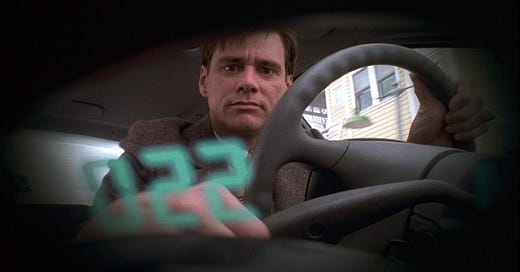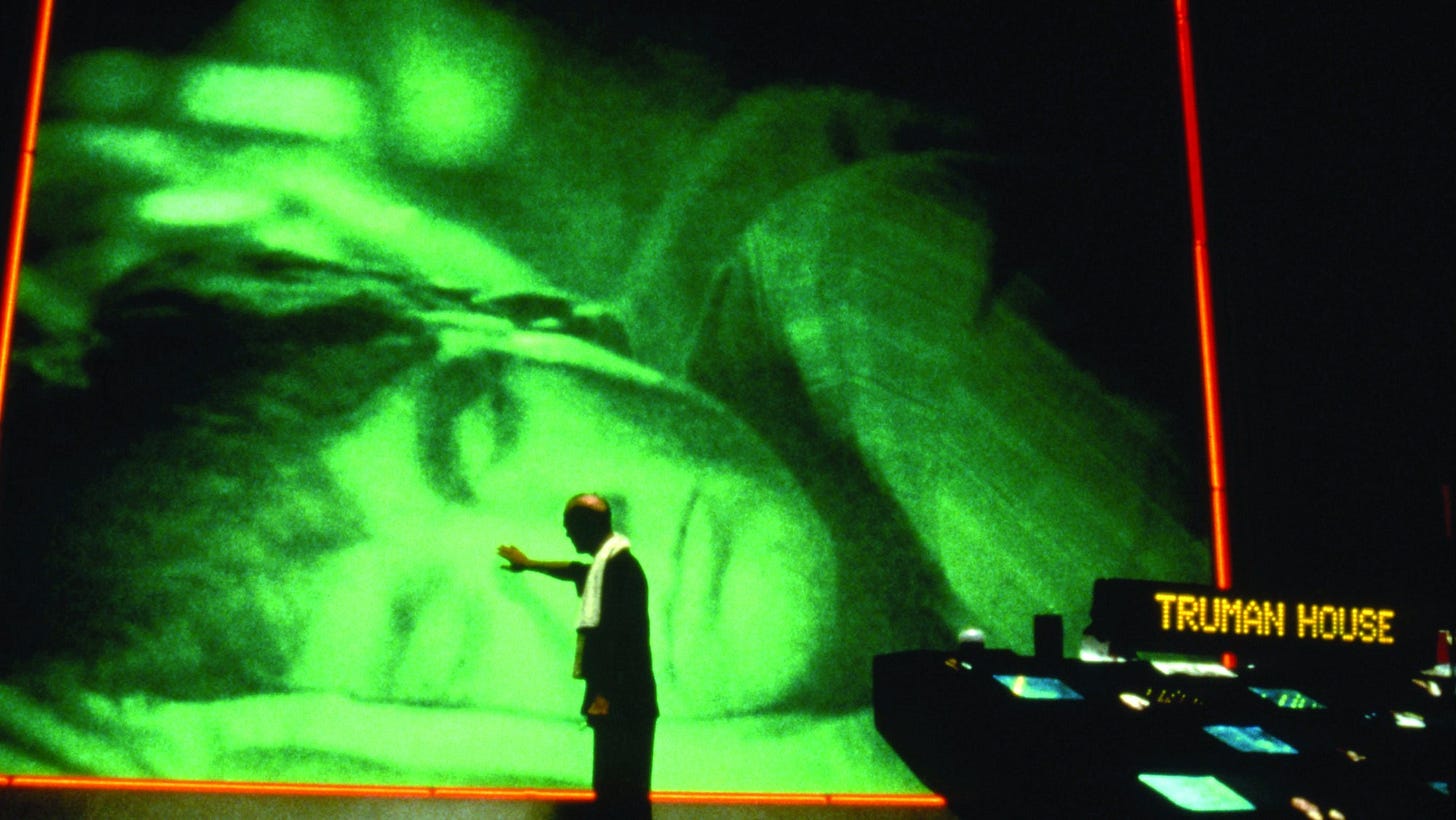MOVIE MINUTE ONE: The Charming Optimism of Peter Weir’s “Truman Show”
I recorded something a while ago; a long while ago. And I still like it. It's always weird to hear myself talk, but I still think the same things about the film. Mostly.
A long time ago—unsettlingly long, as I think back on it—I recorded a half-dozen movie reflections for an internet radio project some friends were producing. These little audio snippets were called “Movie Minutes for Forgotten Road Radio,” if I recall correctly. And I recently stumbled across them once again, squirreled away in a corner of my digital attic (aka, Dropbox). As I listened to the first of them recently, seven years after I’d recorded it—it was the one on Peter Weir’s The Truman Show—a couple of things sprang to mind.
First, my voice is always so much higher “in person” that it is in my head. Second, I’m still not sure how to pronounce Natascha McElhone’s last name. Third, I’ve always considered Eternal Sunshine of the Spotless Mind’s Joel Barish to be the most sincere and most moving thing Jim Carey’s ever done. By a lot.
And fourth, Ed Harris’s Christof is one of cinema’s great, unsettling characters. The film’s got no heart without him. Sure, it’s a monomaniacal, narcissistic, ominous heart. But there’s a terrifying sincerity to his efforts to give Truman “a life without fear.” And his deluded, manipulative confidence that he understands what Truman wants better that Truman does—better than Truman ever could—is too plausible to dismiss as mere “villainy.” The notion that humans all too often crave comfort and ease over the beautiful, fearful challenge (and reward) of the real is perhaps the film’s most troubling suggestion, and Christof is its most compelling mouthpiece; a perfect mixture of writing, directing, and acting. (Weir, Nichol, and Harris were all nominated for Oscars when the film came out. That seems right to me.)
But the thing that most stood out, these seven years later? That it’s taken less than a decade for my attempts at a Chestertonian twisting of the film’s “cautionary message” to become too glaringly accurate to be amusing. Or to even feel like much of a twist.
Here. You can make up your own mind.
The unreal thing about The Truman Show is not that it is possible for man to live a staged and insincere life before the entire world, but that one would willingly walk away from it.





